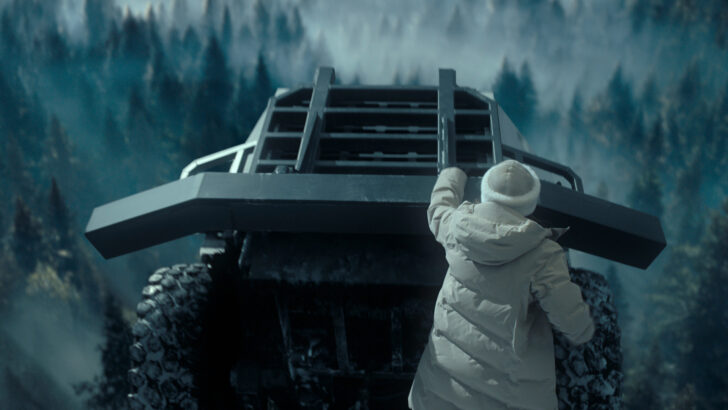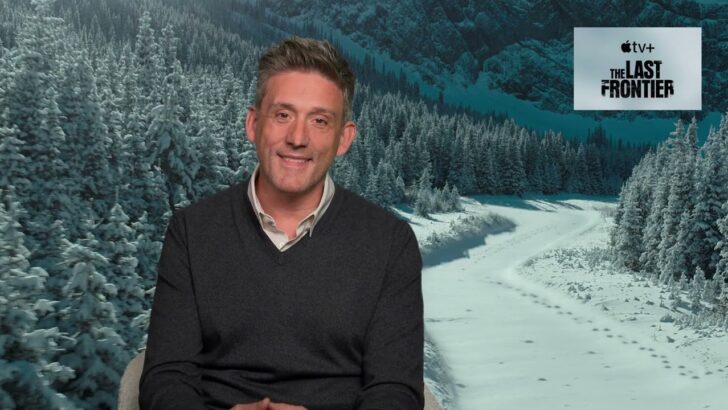Critic’s Rating: 4 / 5.0
4
Alaska just can’t catch a break.
The Last Frontier came back with “Country as F**k,” and honestly, I don’t even know how these people are still standing.
We’ve got wolves, hostages, Johnny Knoxville with a gun, and yet somehow, a few quiet moments that break through the madness.
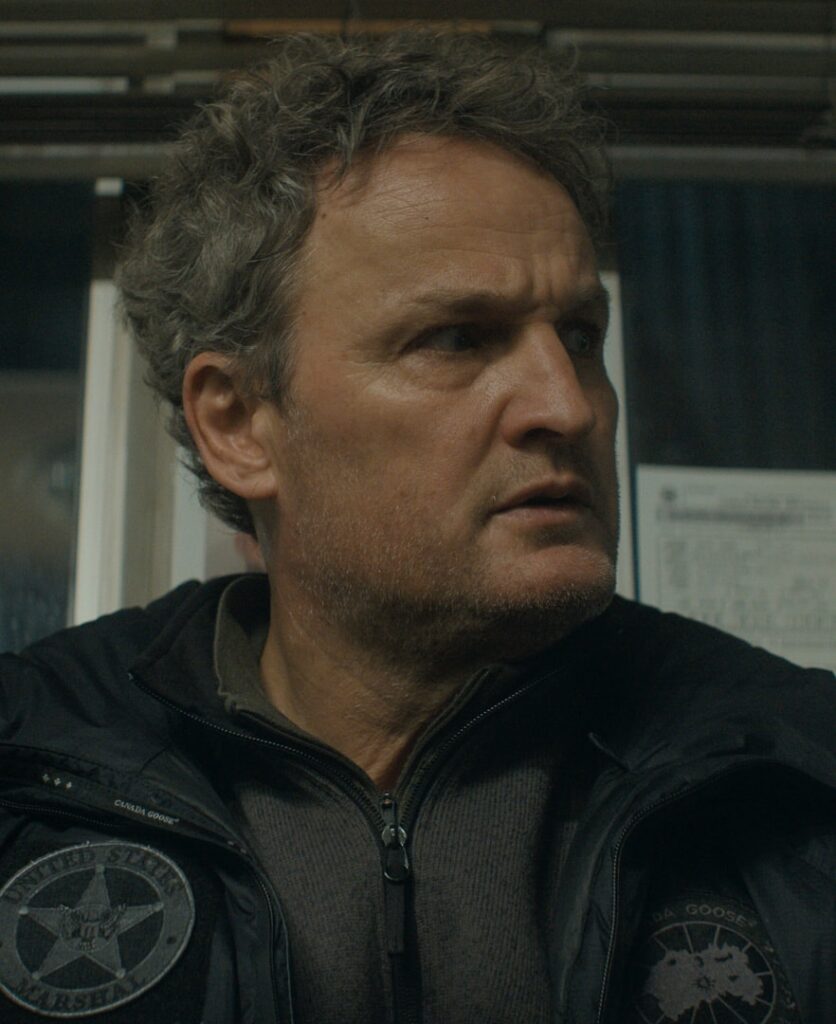
The first surprise came when two guys fishing out on the ice heard something outside their little cabin thing. I have no idea what they’re called, but I bet you do. An ice fishing shack?
Anyway, it wasn’t wolves this time but that kid — half-frozen and barely breathing — whose dad sent him into the snow hoping someone might find him.
I questioned that move when it happened, but I guess the man knew his son better than I did. That boy didn’t stop. He kept walking, and somehow, he found help. It’s a tiny miracle, and in a world as bleak as this one, that’s enough to get under your skin.
Frank’s still doing what Frank does. He’s holding everything together through sheer willpower and the kind of stubbornness that comes from carrying too much for too long. You can tell the fight’s wearing him down, but he won’t stop.
He’s as human as a marshal can get. He’s angry, exhausted, and still trying to fix things no one else can. But you can practically feel his ghosts following him around.
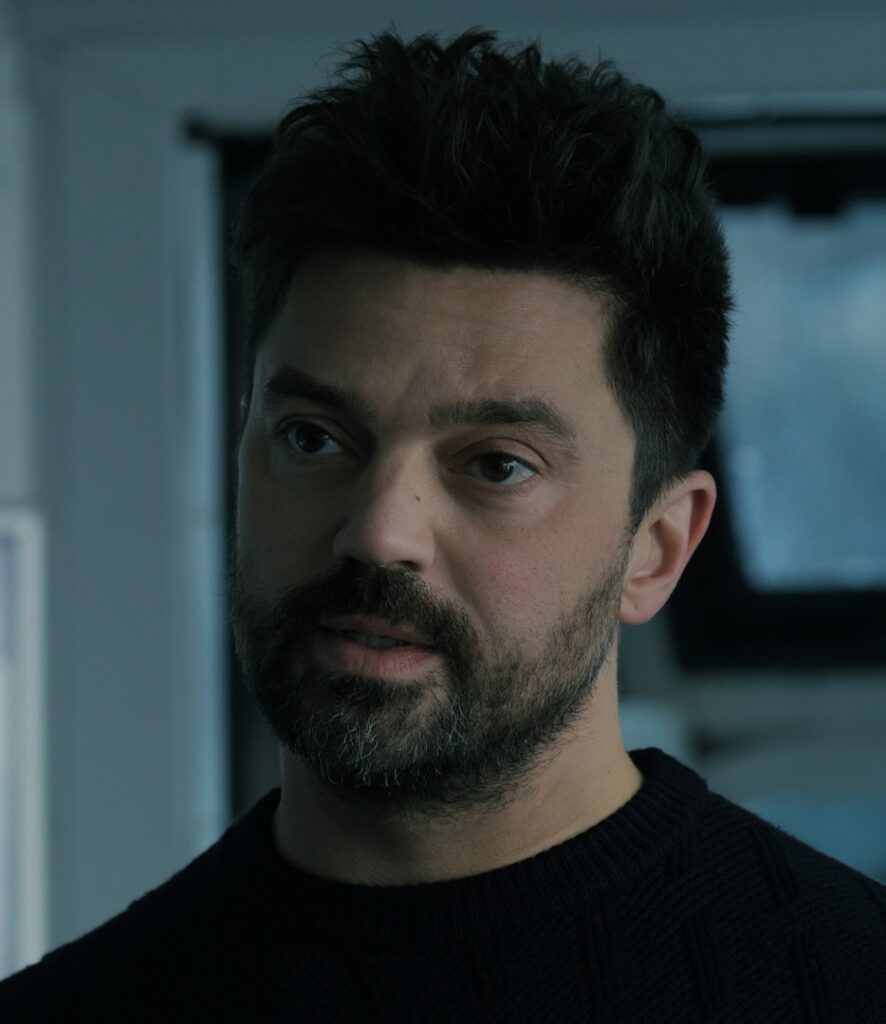
And then there’s Havlock. He’s bleeding, cold, and running on fumes, but he’s not just surviving. He’s chasing something. We don’t know exactly what yet, but it’s pulling him forward like a magnet.
He’s not built to quit; whatever mission or message he’s carrying feels bigger than him. That’s what makes him dangerous.
People like that don’t go down easy; they drag everyone else into their cause right along with them. Scofied is already in that fight, and Havlock intends on bringing Frank and his family into it, too.
Sarah’s rescue comes with an understanding of their situation, which Frank hasn’t figured out yet. She knows that Sidney is hiding something, that she knows exactly what Havlock wants and why he’s manipulating Frank.
But Sarah holds those cards close to the vest because she also knows he’s got his hands full without thinking the woman he has to work with is keeping (pretty crucial) secrets.
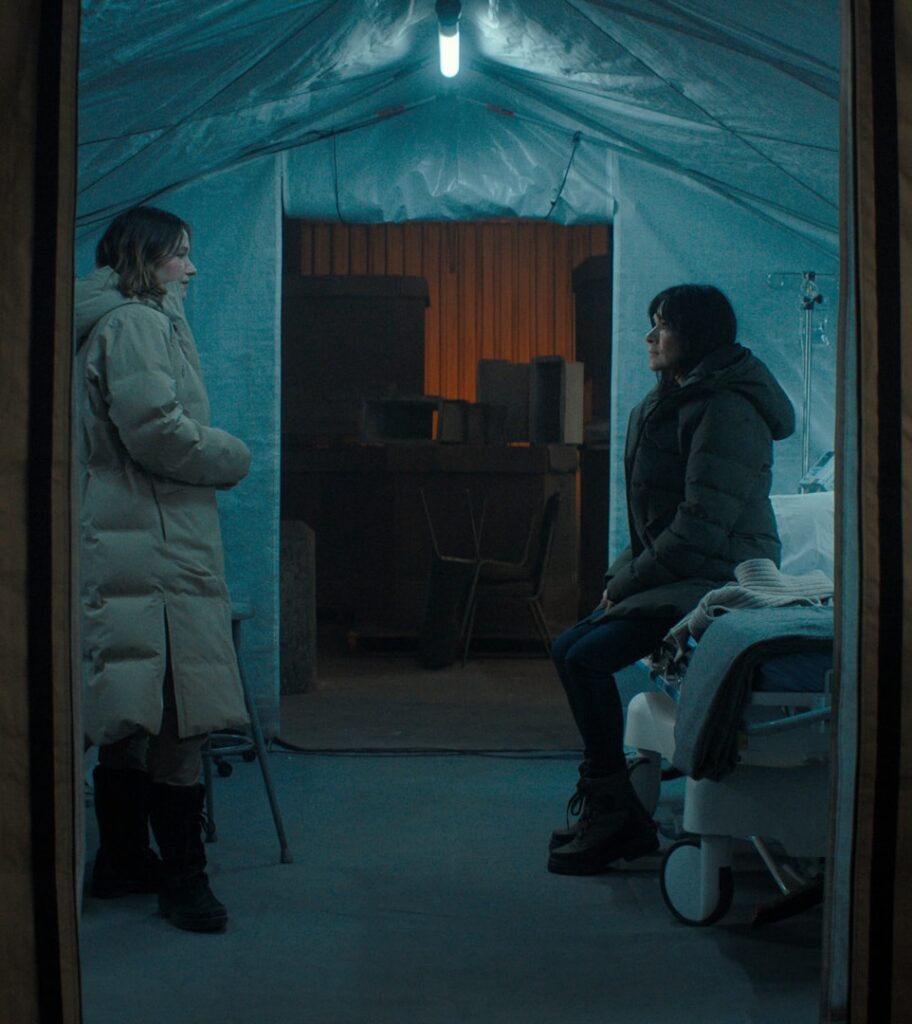
I mean, there’s even a moment where Frank takes a guy down with a snowball. I’m not exaggerating. A freakin’ snowball. It shouldn’t work, but somehow it does. Maybe it’s because Frank doesn’t have time to think anymore, so he just reacts.
Every instinct he’s got is about saving someone, anyone, even if it looks ridiculous in the process. Or, maybe he’s just watched Elf so many times, he knows what a good projectile snowball can do. I’ll take either.
But it’s revealing and proves Sarah’s instincts to hold information at arm’s length for a while are probably spot on.
The show takes a moment to slow down and remember that not every battle is fought with guns. Frank sits with the boy, gives him hot chocolate, and tells him to let the marshmallow melt first.
It’s a quiet and gentle moment that sneaks up on you. It’s an aww shucks scene, which gives Frank a melt-your-heart humanity.
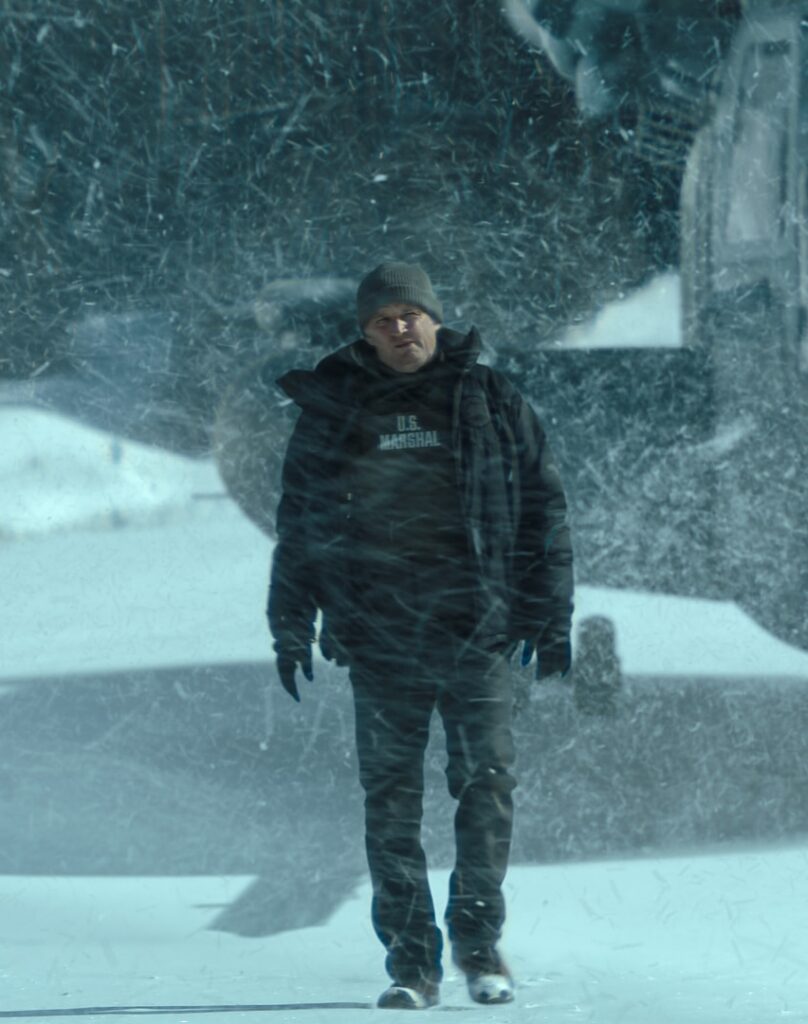
You can see it in his eyes. He’s trying to remind himself that there’s still something good left in the world. When the kid offers him the marshmallow back, it’s not just sweet; it’s hopeful. That’s the fight that matters — holding onto humanity when everything else has gone to hell.
But just like that, the story veers straight into madness again. And if you know me, you know that’s just the way I like it!
A sightseeing rig full of tourists drinking coffee and wine while trying to take wildlife pics for Instagram turns into a rolling hostage crisis. Leave it to The Last Frontier to make a snowbound tour bus feel like a ticking bomb.
Until this scene, I had forgotten that Johnny Knoxville was in this show. I’m not kidding. I may have recognized him after the fact for my premiere review, but this was the moment that I thought, holy hell, that’s Johnny Knoxville.
Whoever he’s playing (one of the escaped prisoners) of course has a gun, a mean streak, and that half-smirk that says he’s having the time of his life.
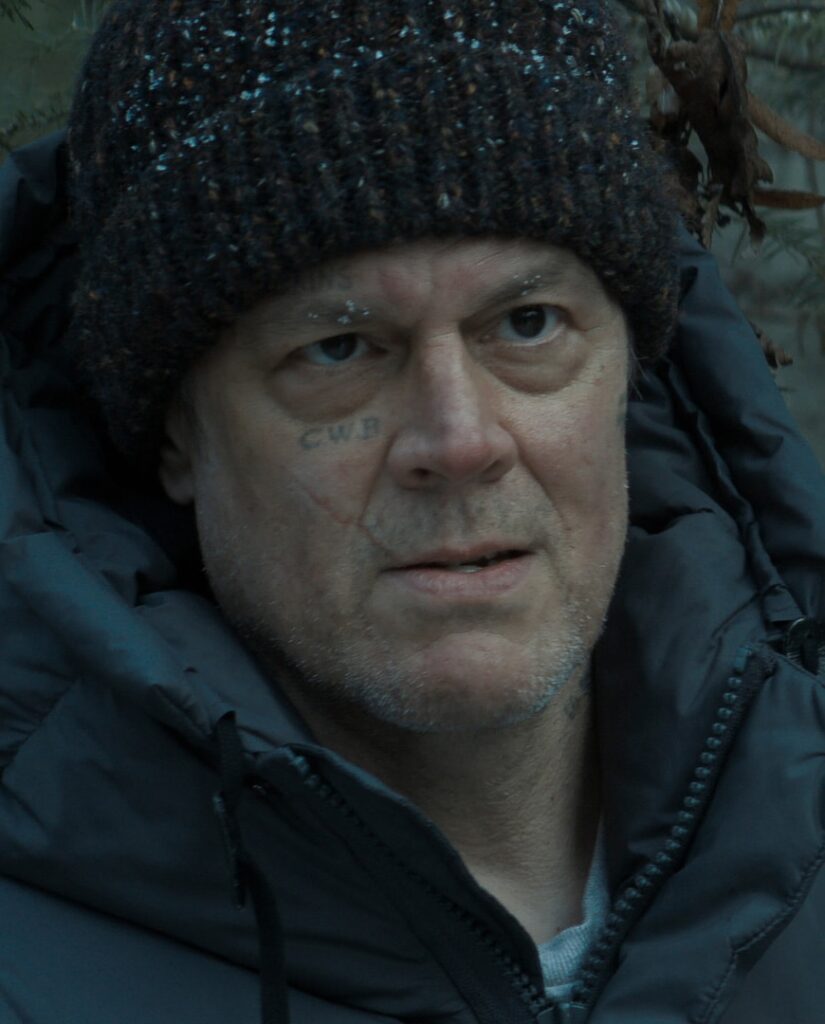
You’d think it would pull you out of the story, but it doesn’t. He fits. The man’s made a career out of chaos, and that’s exactly what this world runs on. It’s so bizarre it works.
Frank’s racing the clock again, and you can see how much of himself he’s burning to keep everyone alive.
He’s all grit and instinct now, but underneath it, there’s fear. Not fear for himself — that’s long gone — but fear of what happens if he fails because every life lost feels like a debt he can’t repay.
And that’s what makes his scene with Sarah when they finally reunite work so well.
When he finally gets to her, she’s bruised and battered, but you can see the relief wash over both of them. It’s not loud or cinematic. It’s just two people who’ve been through hell trying to remember what it feels like to breathe again.
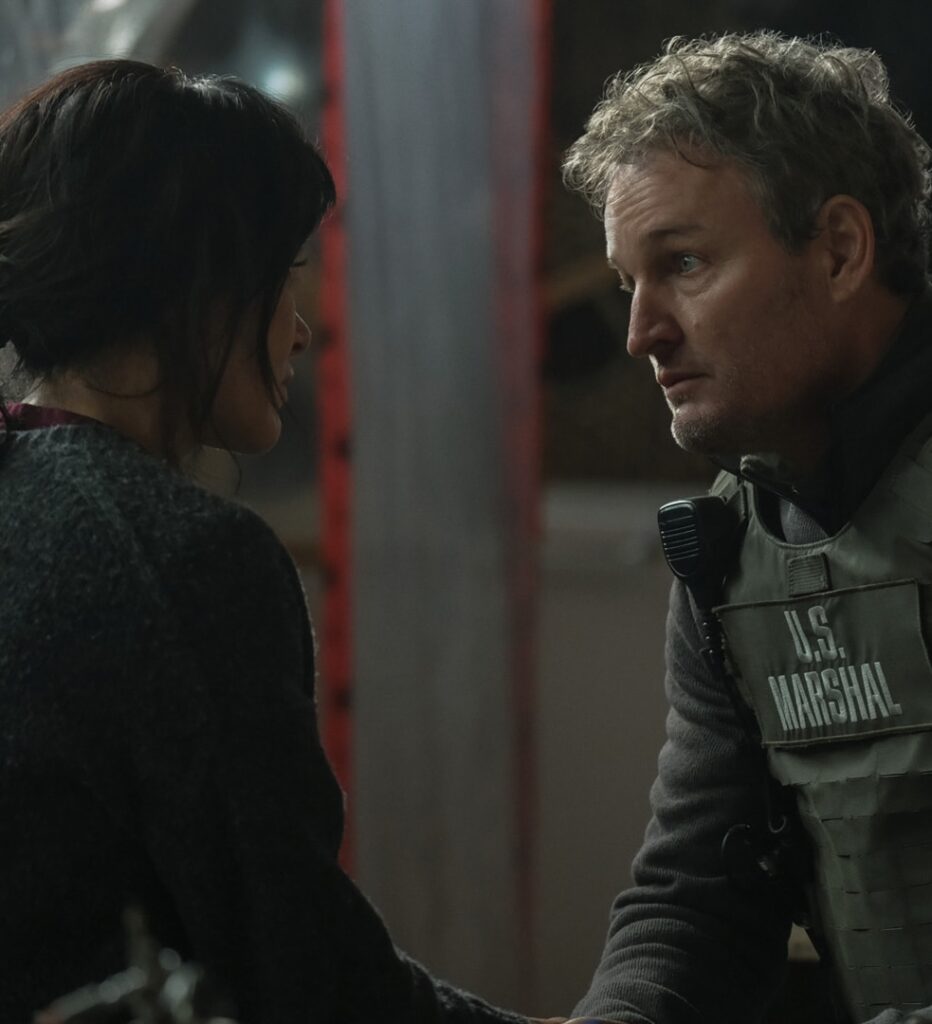
She asks about Luke, and he lies, saying he’s fine. She knows he’s not, but she lets it go. That’s love in this world. It’s not the grand stuff, but the quiet “I’ll pretend for you” kind that keeps you standing when you should be on the floor. Little does he know he’s not the only one doing it.
And while Frank’s out here trying to hold the world together, Luke’s up north, reminding us why parents age faster than they should.
The kid’s holed up in the newly purchased family cabin with Kira — yeah, the same one surrounded by more red flags than a bullring — and somehow he’s decided the random guy by the fire isn’t a threat.
OK, sure. The guy’s polite enough at first, acting like he just wandered out of a hunting trip gone wrong. So Luke relaxes. Starts talking about how his parents are always trying to fix everything, how it doesn’t seem to matter because the world’s messed up anyway.
It’s the kind of irony that makes you yell at the screen. He’s literally saying this to one of the people they’re trying to protect him from.
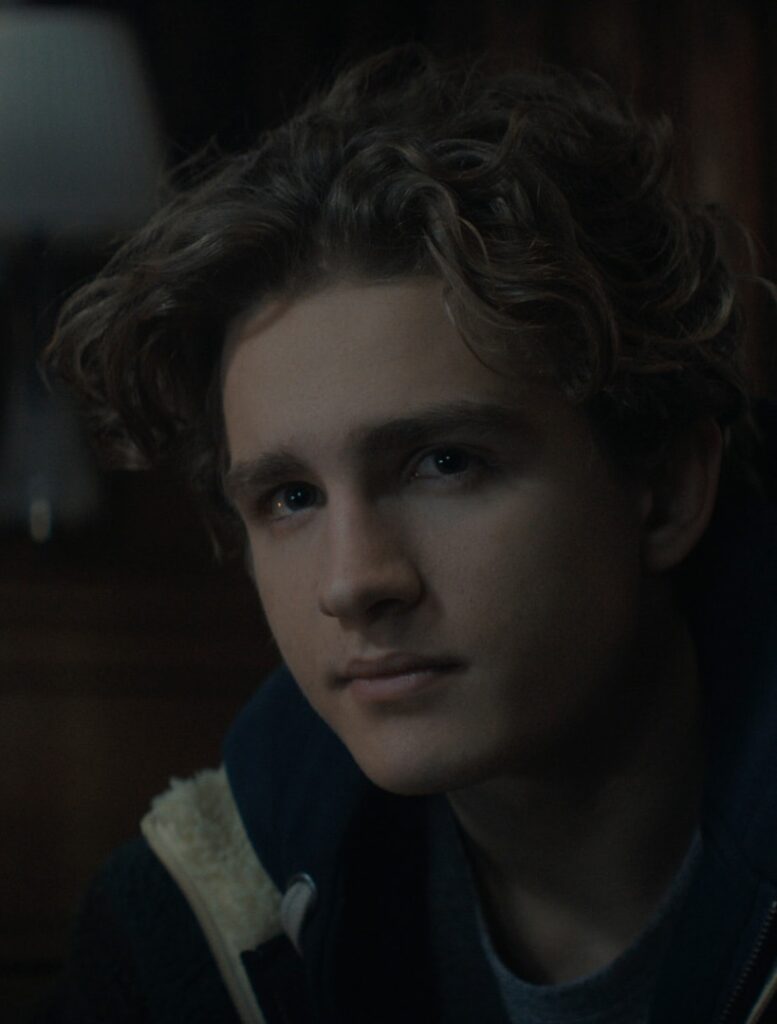
Kira, bless her, has more sense. She wanders out for firewood and finds a state trooper’s vehicle still running — wipers going, files sitting in plain sight — and realizes something’s not right.
By the time she gets back, the mask is off. Their cozy campfire guest isn’t lost or confused. He’s an escaped prisoner with a gun, and now he’s holding all the cards.
Jane calls in on the walkie, and Luke lies through his teeth — says he’s fine, says Hayes is with him, says Kira’s fine too. It’s one of those scenes that hits harder the longer it plays, because Frank and Sarah sound so relieved on the other end.
They think their son’s safe and warm by a fire, but we know the truth. It’s twisted, it’s tense, and it’s exactly the kind of heartbreak this show loves to throw in for sport.
Havlock, of course, is never far from anyone’s peace.
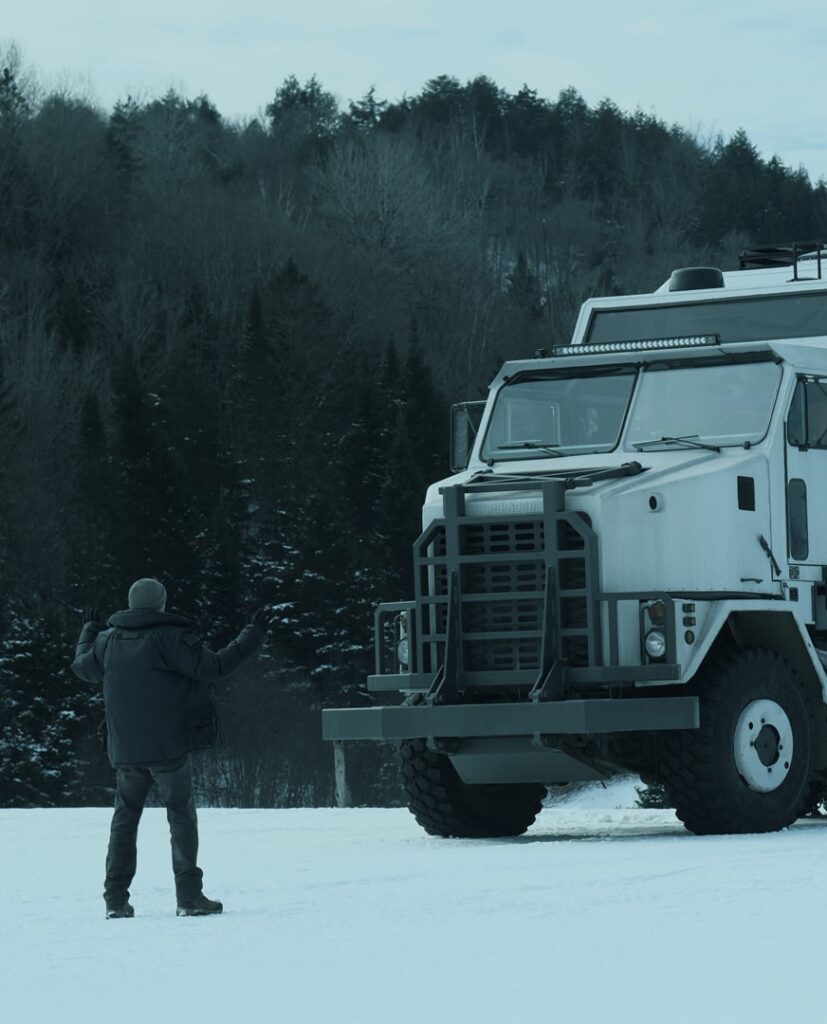
Every time you think he’s gone, he pops up again — like an echo that won’t fade. He’s not just evil; he’s deliberate. And even after I type evil I know he’s not that. This isn’t a story about his evil. It’s about the evil he’s chasing. You can feel it.
He’s got something to prove, and every word that comes out of his mouth sounds like he’s building toward a confession none of us are ready to hear. You can tell he believes what he’s doing matters.
That makes him somewhat terrifying, even if I’m already sold on him being more than a mustache-twirling villain. You can’t reason with purpose, especially when you don’t know what that purpose is.
Scofield probably knows. Getting her to share what she knows with Frank will probably take a while.
By the time the show throws us into another avalanche of action — choppers hovering, buses hanging off cliffs, Havlock doing his best villain monologue while bullets fly — you almost forget to breathe.
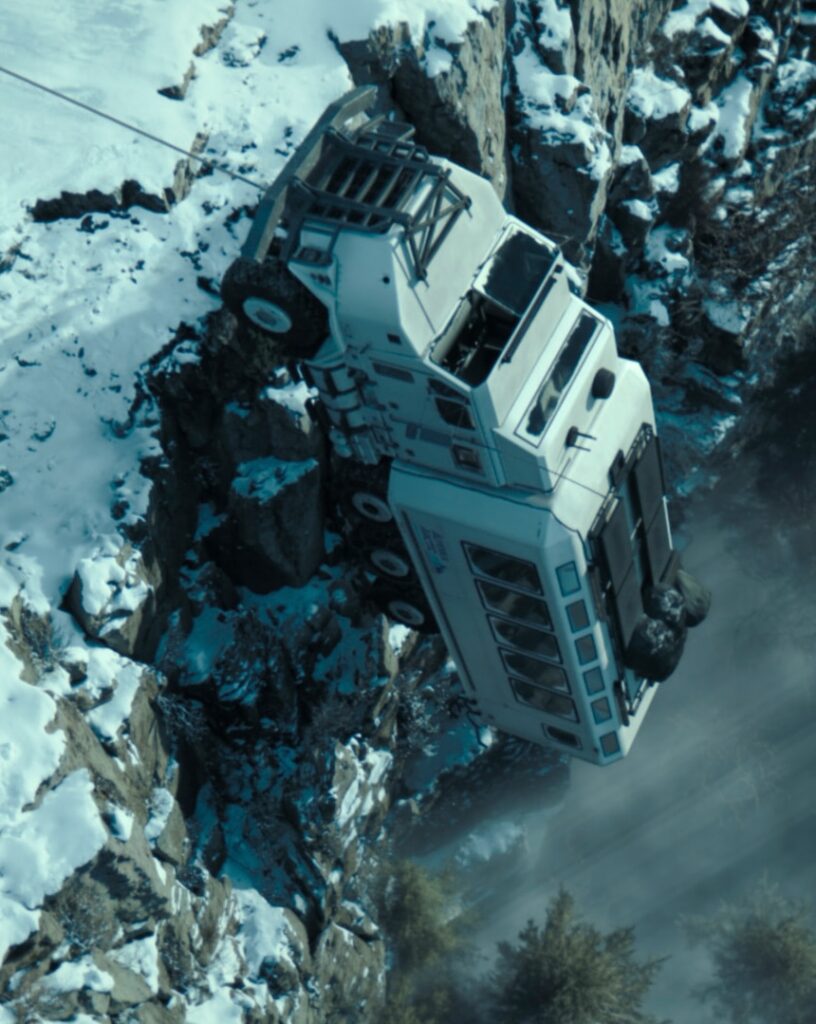
It’s a lot, but that’s this show’s identity now. It doesn’t pause for logic; it runs on adrenaline and pure conviction.
I mean, it’s enough that Frank and Havlock are tussling in the hanging bus, but Sidney jumping on top when the thing is hanging on by a thread? Who the hell is she? Who the hell are they?
Honestly, I can’t get enough of it. It’s so gloriously ludicrous. And when you see Havlock fall backward into the void? Shoot. You know he’s bouncing back like a cartoon character. He’s not going anywhere. He’s the story!
After the dust settles — if you can even call it that — the episode slows down again and finally reveals what’s been driving Frank’s fear. He talks about his daughter, Ruby Grace, and just saying her name knocks the wind out of him.
We’ve seen him hold everything else together, but that’s the crack that never healed. It’s the reason he fights so hard, the reason he still gets up every morning, even when continuing another day seems too much to bear.
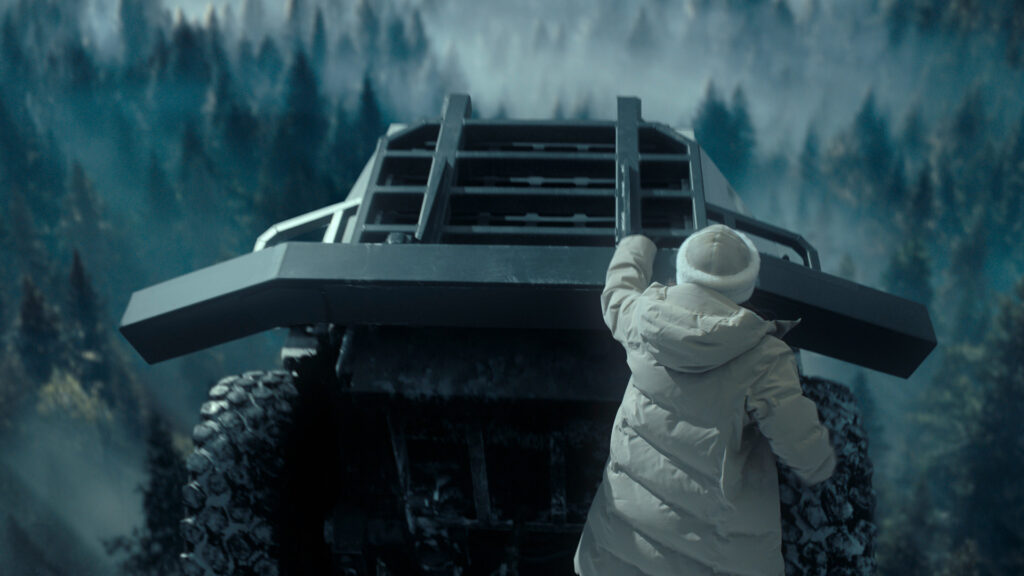
For a man who barely says more than he has to, this is the moment he lets us see the truth, that all the noise and chaos he gravitates toward has been covering up a broken heart.
And Scofield, who’s usually all ice and vodka and regret, even softens for half a second. She knows what loss feels like. You can see it in her eyes when she tells him about her father, about the mess she inherited and the ghosts she can’t bury.
These two are the same kind of broken — both built to fix problems no one else will touch, both drowning in guilt they can’t quite name.
That’s why their scenes work so well. It’s not a romance or even a bromance. It’s recognition. They are two people staring at the same wreckage and realizing they’re both part of it.
And then — holy hell — the twist.
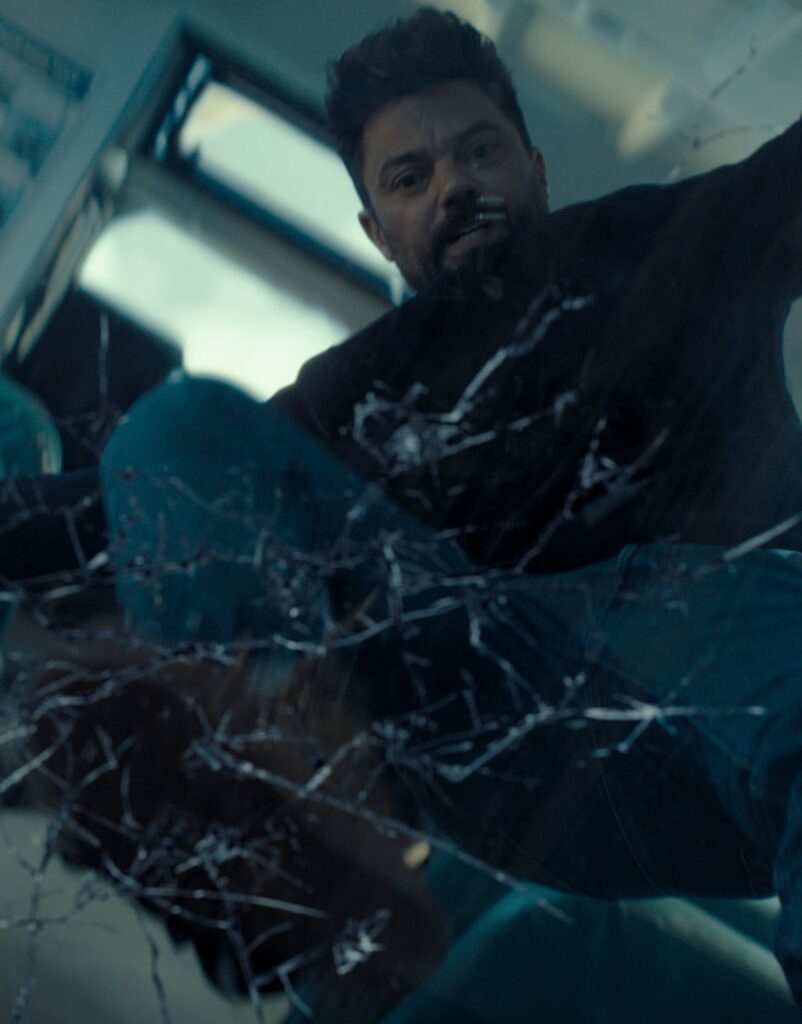
Scofield isn’t just tied to Havlock through the job. She’s his wife. His actual, literal wife. What the hell? Way to bury the lede! It’s the kind of reveal that makes you want to rewind everything just to see what you missed.
All that tension, all those looks — it suddenly makes sense. It’s a shock, and honestly, it’s the most soap meets spy thriller thing this show could’ve done, but I’m not upset about it. It works.
By the end, Havlock’s vanished again, swallowed by the snow (yeah, right), and Frank’s left standing there, surrounded by wreckage that feels both external and internal.
He’s got his wife back for now, but you can tell this isn’t over. Not even close. Every person in this story is running from something — a mistake, a secret, a memory that won’t let go — and Alaska’s just the mirror reflecting it all back.
“Country as F**k” might be the most accurate title of the bunch. It’s rugged, unpredictable, a little too much at times, but it’s also oddly heartfelt. This world’s as messy as the people in it, and that’s exactly what makes it work.
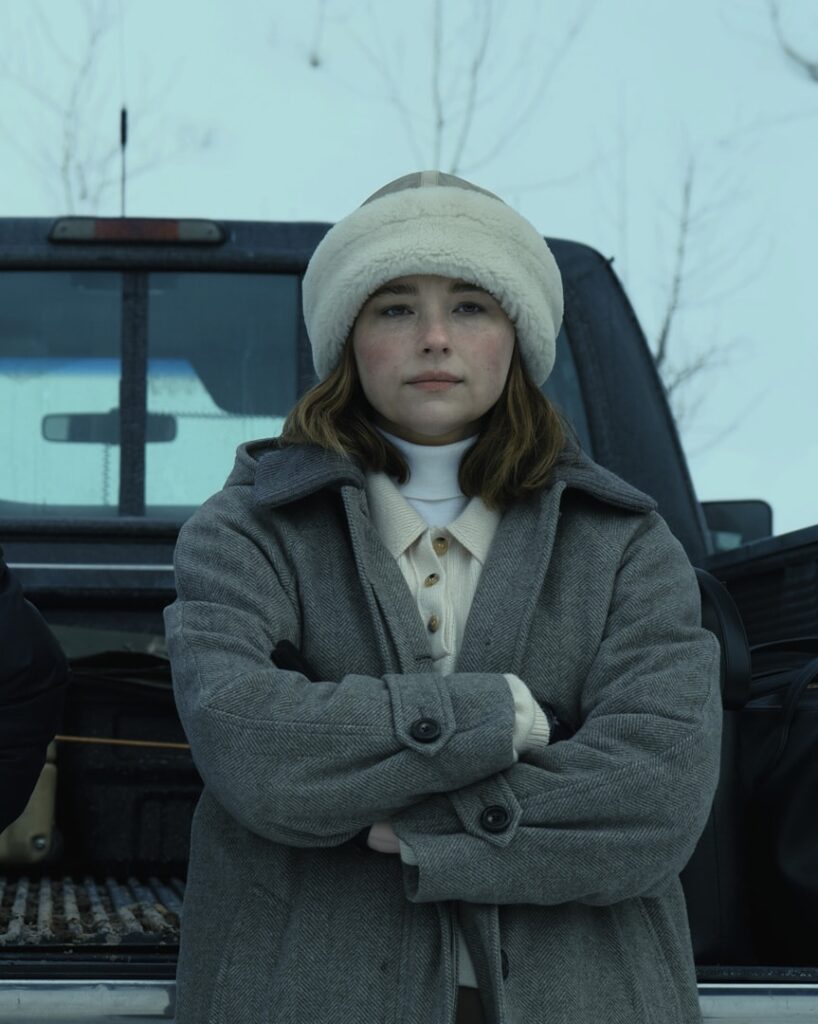
What did you think?
Are you starting to understand Havlock’s endgame, or are you just along for the crazy ride that is The Last Frontier Season 1 like the rest of us?
Either way, one thing’s clear — out here, nobody’s safe, and nothing stays buried for long.
-
The Last Frontier cranks up the chaos in “Country as F**k,” blending it signature action action with bruised hearts and an unexpected twist.
-
The Blacklist creator Jon Bokenkamp talks about taking the action to Alaska, exploring identity and morality, and balancing chaos and heart in The Last Frontier.
-
Dominic Cooper and Haley Bennett open up about The Last Frontier’s mind games, moral dilemmas, and why filming explosions in the Alaskan wilderness was outrageous.

